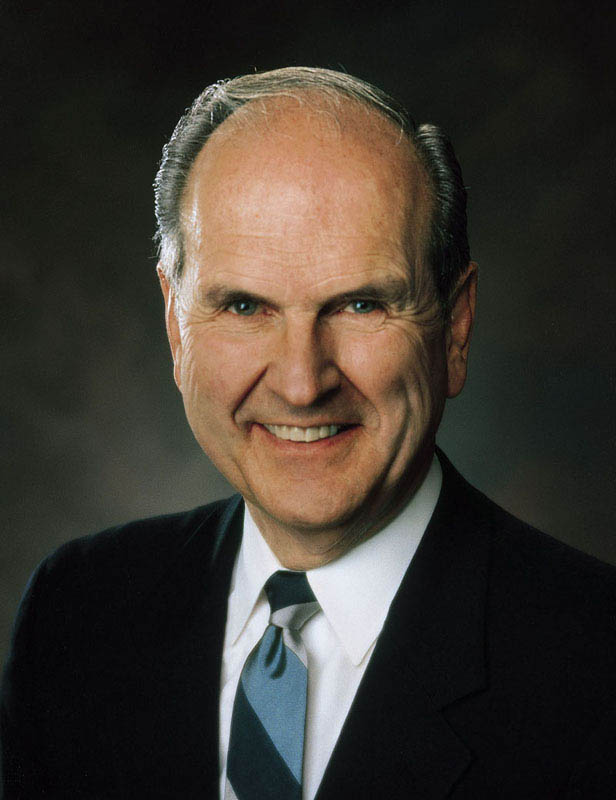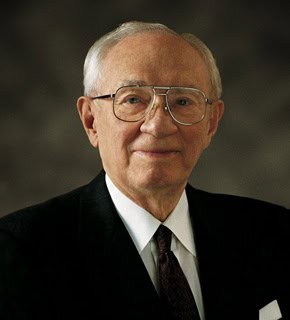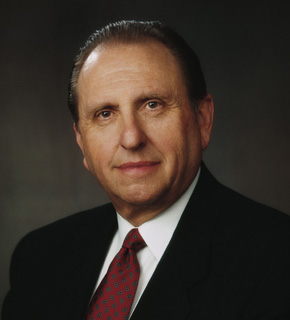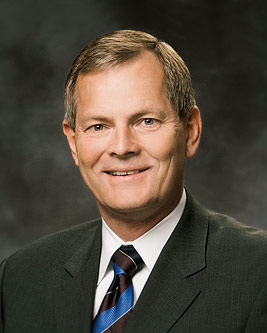SEARCH BY TITLE
 Decisions for Eternity
Decisions for Eternity
President Thomas S. Monson has taught us that “decisions determine destiny.” The wise use of your freedom to make your own decisions is crucial to your spiritual growth, now and for eternity. You are never too young to learn, never too old to change. Your yearnings to learn and change come from a divinely instilled striving for eternal progression. Each day brings opportunity for decisions for eternity. We are eternal beings—spirit children of heavenly parents. The Bible records that “God created man in his own image, … male and female created he them.” Recently I heard a chorus of children sing the beloved song “I Am a Child of God.” I wondered, “Why haven’t I heard that song rendered more often by singing mothers or faithful fathers?” Are we not all children of God? In truth, not one of us can ever stop being a child of God! As children of God, we should love Him with all our heart and soul, even more than we love our earthly parents. We should love our neighbors as brothers and sisters. No other commandments are greater than these. And we should ever revere the worth of human life, through each of its many stages. Scripture teaches that the body and the spirit are the soul of man. As a dual being, each of you can thank God for His priceless gifts of your body and your spirit. . . Some of the decisions that will determine your eternal destiny include: How will you choose to care for and use your body? What spiritual attributes will you choose to develop?
 Don’t Drop the Ball
Don’t Drop the Ball
Some of you older men may remember the Rose Bowl football game of 1929, when a player named Roy Riegels recovered a fumble and ran almost the length of the field toward the goal of his opponent. He was tackled and brought down by one of his own team, preventing a touchdown. He had lost his sense of direction in a moment of stress. His mistake cost his team a victory. He was a great player. He lived to be eighty-four, but ever afterward he was remembered as the man who ran the wrong way. This phenomenon is not peculiar to sports. It happens every day in life. There is the student who thinks he is doing well enough, and then under the stress of the final exam, flunks out. There is the driver who all of his life has had a flawless record and then, in a moment of carelessness, is involved in a tragic accident. There is the trusted employee whose performance has been excellent, and then he succumbs to the temptation to steal a little from his employer. A mark is placed upon him which never seems to entirely disappear. There is the life lived with decency—and then comes the destructive, ever-haunting, one-time moral letdown. There is the outburst of anger that suddenly destroys a long-cherished relationship. There is the little sin that somehow grows and eventually leads to separation from the Church. In all of these, someone dropped the ball. He had the self-confidence, possibly even the arrogance, to think that he didn’t really have to try, that he could make it with only half an effort. But the ball passed through his hands and hit the ground, and he gave away the game. Or he thinks he makes a smart catch of someone else’s fumble and runs the wrong way, only to give victory to his opponents. It all points up the need to be constantly alert. It points up the importance of unrelenting self-discipline. It indicates the necessity of constantly building our strength against temptation. It warns us against the misuse of our time, especially our idle time.
 The Three R’s of Choice
The Three R’s of Choice
When faced with significant choices, how do we decide? Do we succumb to the promise of momentary pleasure? To our urges and passions? To the pressure of our peers? Let us not find ourselves as indecisive as is Alice in Lewis Carroll’s classic Alice’s Adventures in Wonderland. You will remember that she comes to a crossroads with two paths before her, each stretching onward but in opposite directions. She is confronted by the Cheshire cat, of whom Alice asks, “Which path shall I follow?” The cat answers, “That depends where you want to go. If you do not know where you want to go, it doesn’t matter which path you take.” Unlike Alice, we all know where we want to go, and it does matter which way we go, for by choosing our path, we choose our destination Decisions are constantly before us. To make them wisely, courage is needed—the courage to say no, the courage to say yes. Decisions do determine destiny. I plead with you to make a determination right here, right now, not to deviate from the path which will lead to our goal: eternal life with our Father in Heaven. Along that straight and true path there are other goals: missionary service, temple marriage, Church activity, scripture study, prayer, temple work. There are countless worthy goals to reach as we travel through life. Needed is our commitment to reach them.
 Truth: The Foundation of Correct Decisions
Truth: The Foundation of Correct Decisions
Since truth is the only meaningful foundation upon which we can make wise decisions, how then can one establish what is really true? Increasingly more people are finding that making wise decisions is becoming more and more difficult because of the ultra-interconnected world in which we live. Constantly forced into our consciousness is an incessant barrage of counsel, advice, and promotions. It is done by a bewildering array of media, Internet, and other means. On a given subject we can receive multiple strongly delivered, carefully crafted messages with solutions. But often two of the solutions can be diametrically opposed. No wonder some are confused and are not sure how to make the right decisions. To further complicate matters, others try to persuade us that our decisions must be socially acceptable and politically correct. Some pondering of that approach will reveal how wrong it is. Since social and political structures differ widely over the world and can dramatically change with time, the folly of using that method to make choices is apparent. There are two ways to find truth—both useful, provided we follow the laws upon which they are predicated. The first is the scientific method. It can require analysis of data to confirm a theory or, alternatively, establish a valid principle through experimentation. The scientific method is a valuable way of seeking truth. However, it has two limitations. First, we never can be sure we have identified absolute truth, though we often draw nearer and nearer to it. Second, sometimes, no matter how earnestly we apply the method, we can get the wrong answer. The best way of finding truth is simply to go to the origin of all truth and ask or respond to inspiration. For success, two ingredients are essential: first, unwavering faith in the source of all truth; second, a willingness to keep God’s commandments to keep open spiritual communication with Him.
 Your Four Minutes
Your Four Minutes
Now, consider how your pathway to eternal life is similar to these athletes’ “four-minute performance.” You are an eternal being. Before you were born, you existed as a spirit. In the presence of a loving Heavenly Father, you trained and prepared to come to earth for a brief moment and, well, perform. This life is your four minutes. While you are here, your actions will determine whether you win the prize of eternal life. The prophet Amulek described, “This life is the time … to prepare to meet God; yea, behold the day of this life is the day … to perform [your] labors.” In a sense, your four minutes have already begun. The clock is ticking. The words of the Apostle Paul seem so fitting: to run the race, that you may obtain the prize. In the same way that certain steps are essential in the very brief performance of an Olympic athlete—jumps or maneuvers for ice skaters and snowboarders, negotiating the turns of a bobsled run, or carving through the gates of a downhill slalom course—so it is in our lives, where certain things are absolutely essential—checkpoints which move us through our spiritual performance on earth. These spiritual markers are the essential God-given ordinances of the gospel: baptism, receiving the gift of the Holy Ghost, priesthood ordinations, temple ordinances, and partaking of the sacrament each week. “In the[se] ordinances … , the power of godliness is manifest.” And in the same way that the discipline of training prepares an athlete to perform elements in his or her sport at the highest level, keeping the commandments will qualify you to receive these saving ordinances. Do you sense the urgency?
